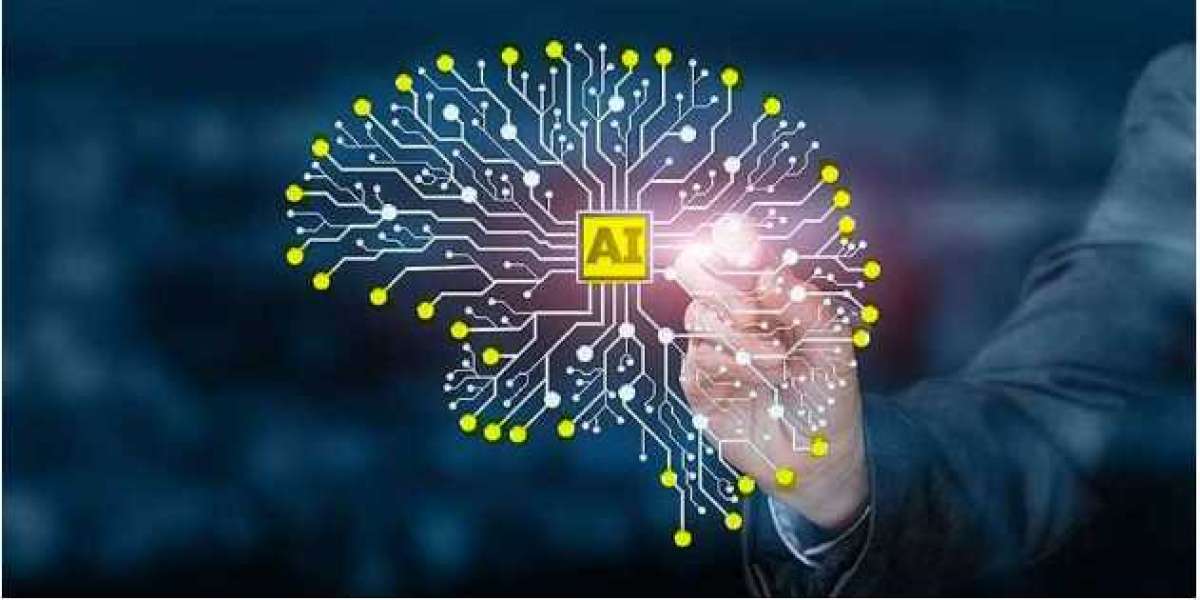Artificial Intelligence (AI) is no longer just a concept confined to the realms of science fiction; it has woven itself into the fabric of our everyday lives, influencing various sectors, and fundamentally transforming how we live, work, and interact. From smart assistants in our homes to advanced algorithms in healthcare, AI’s influence is both profound and pervasive. In this blog, we will explore the multifaceted impact of AI on human life, delving into its benefits, challenges, and the future it promises.
The Dawn of AI: A Brief Overview
AI, in its simplest form, refers to the capability of machines to mimic human intelligence. This encompasses a broad spectrum of technologies, from machine learning and natural language processing to robotics and neural networks. The journey of AI began with early theoretical concepts and has evolved into sophisticated systems capable of learning, reasoning, and self-correction.
AI in Daily Life: The Ubiquitous Companion
One of the most visible impacts of AI is its integration into daily life through smart devices and personal assistants like Siri, Alexa, and Google Assistant. These AI-powered assistants help manage schedules, control smart home devices, answer queries, and even provide entertainment. The convenience they offer has made them indispensable to millions of households worldwide.
Moreover, AI algorithms are at the heart of recommendation systems used by platforms like Netflix, Amazon, and Spotify. These systems analyze user preferences and behaviors to suggest movies, products, or music, enhancing the user experience and keeping us engaged.
AI in Healthcare: Revolutionizing Medicine
The healthcare sector has seen remarkable advancements thanks to AI. From diagnostics and treatment recommendations to personalized medicine and robotic surgeries, AI is revolutionizing how healthcare is delivered.
Diagnostics and Imaging: AI algorithms can analyze medical images with incredible precision, assisting radiologists in detecting conditions like cancer at early stages. For instance, Google's DeepMind has developed an AI system that can diagnose eye diseases as accurately as world-leading doctors.
Personalized Medicine: AI enables the analysis of vast amounts of genetic information, helping in the creation of personalized treatment plans tailored to individual patients. This approach increases the efficacy of treatments and reduces adverse effects.
Predictive Analytics: AI systems can predict disease outbreaks and patient outcomes by analyzing patterns in large datasets. This predictive capability is invaluable for preventing the spread of diseases and improving patient care.
AI in Business: Driving Efficiency and Innovation
In the business world, AI is a powerful tool for enhancing efficiency, driving innovation, and gaining competitive advantage. From customer service to supply chain management, AI applications are diverse and impactful.
Customer Service: AI-powered chatbots and virtual assistants handle customer inquiries, provide support, and improve response times. They can operate 24/7, offering consistent service and freeing human agents to handle more complex issues.
Data Analysis and Insights: AI can process and analyze vast amounts of data far more quickly than humans, uncovering insights and trends that inform business strategies. This capability is essential for making data-driven decisions and staying ahead of market trends.
Automation: Routine tasks such as data entry, inventory management, and even complex processes like financial trading can be automated using AI. This not only increases efficiency but also reduces the potential for human error.
AI in Education: Transforming Learning
Education is another sector experiencing a transformative impact due to AI. Intelligent tutoring systems, personalized learning experiences, and administrative automation are just a few examples of how AI is reshaping education.
Personalized Learning: AI algorithms can adapt educational content to meet the unique needs of each student, providing personalized learning experiences that enhance understanding and retention. This approach helps cater to different learning styles and paces.
Tutoring Systems: AI-driven tutoring systems provide students with additional support outside the classroom. These systems can offer explanations, answer questions, and provide feedback, helping students grasp difficult concepts.
Administrative Efficiency: AI automates administrative tasks such as grading and scheduling, allowing educators to focus more on teaching and less on paperwork. This improves the overall efficiency of educational institutions.
Ethical Considerations: The Double-Edged Sword
While the benefits of AI are numerous, its rapid advancement also raises ethical and societal concerns. Issues such as privacy, bias, and job displacement need to be addressed to ensure AI is developed and deployed responsibly.
Privacy: AI systems often require vast amounts of data to function effectively. This data collection raises concerns about privacy and data security. Ensuring that AI systems adhere to strict privacy regulations and standards is crucial.
Bias: AI systems can inadvertently perpetuate or even exacerbate biases present in the training data. Addressing these biases is essential to ensure AI applications are fair and equitable.
Job Displacement: The automation capabilities of AI can lead to job displacement in certain sectors. While AI creates new opportunities, it also necessitates a shift in skills and education to prepare the workforce for an AI-driven future.
The Future of AI: Opportunities and Challenges
The future of AI holds immense potential but also presents significant challenges. As AI continues to evolve, it will likely impact new areas and offer novel solutions to complex problems. However, navigating the ethical and societal implications will be crucial.
Healthcare Innovations: AI’s role in healthcare will continue to expand, with potential breakthroughs in areas such as drug discovery, precision medicine, and telehealth. Ensuring these advancements are accessible to all will be a key challenge.
Environmental Sustainability: AI can contribute to addressing environmental challenges through applications in energy management, climate modeling, and conservation efforts. Leveraging AI for sustainable development will be critical.
Human-AI Collaboration: The future will likely see increased collaboration between humans and AI systems. Developing interfaces and workflows that maximize the strengths of both will be essential for harnessing AI’s full potential.
Conclusion
AI’s impact on human life is profound and far-reaching. Its integration into various sectors has brought about significant improvements in efficiency, personalization, and innovation. However, the ethical and societal challenges it poses must be carefully managed to ensure that the benefits of AI are realized in a fair and equitable manner.
As we look to the future, it is clear that AI will continue to play a pivotal role in shaping our world. By embracing its potential and addressing its challenges, we can harness the power of AI to create a better, more inclusive future for all.
That's a brief overview of AI's impact on human life in around 2000 words. I hope this serves as a helpful foundation for your blog! If you need any more details or further sections, feel free to ask.














